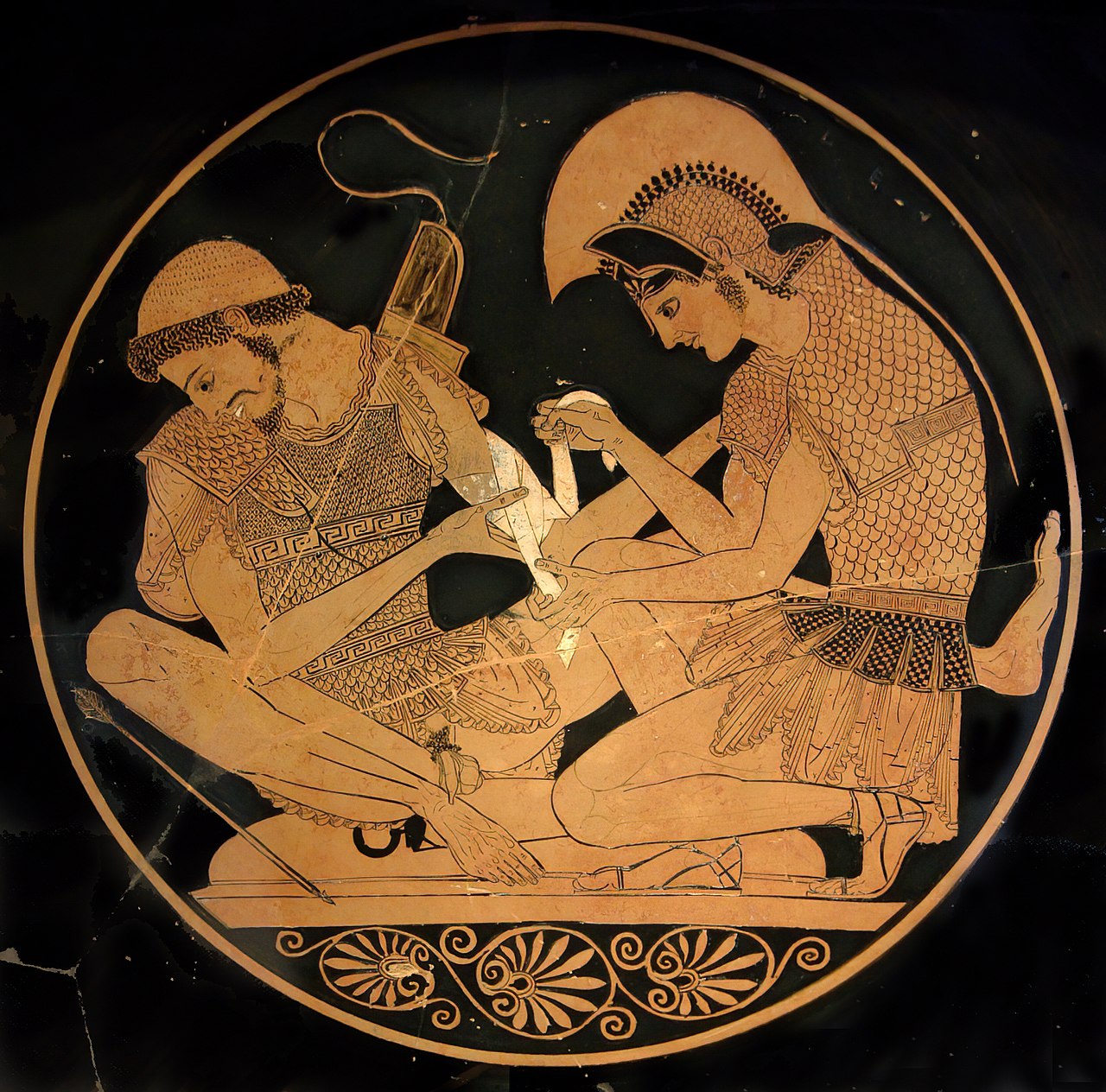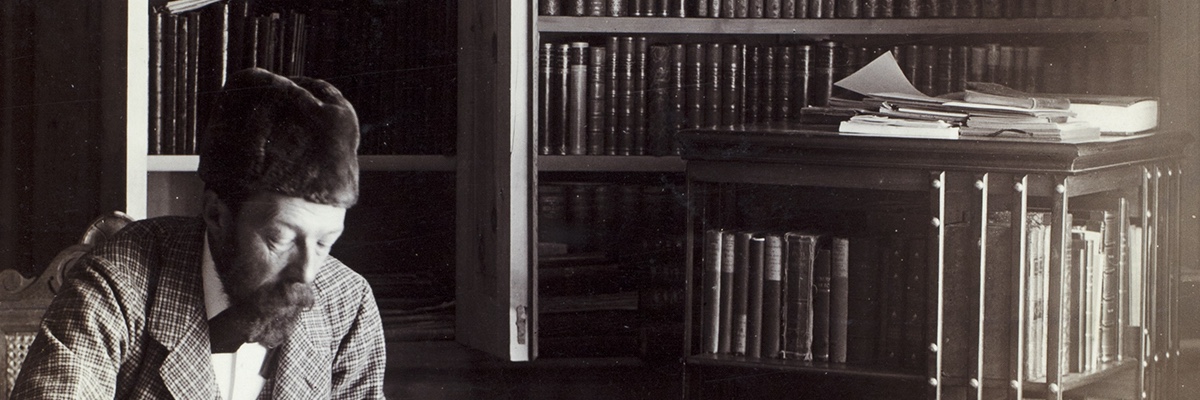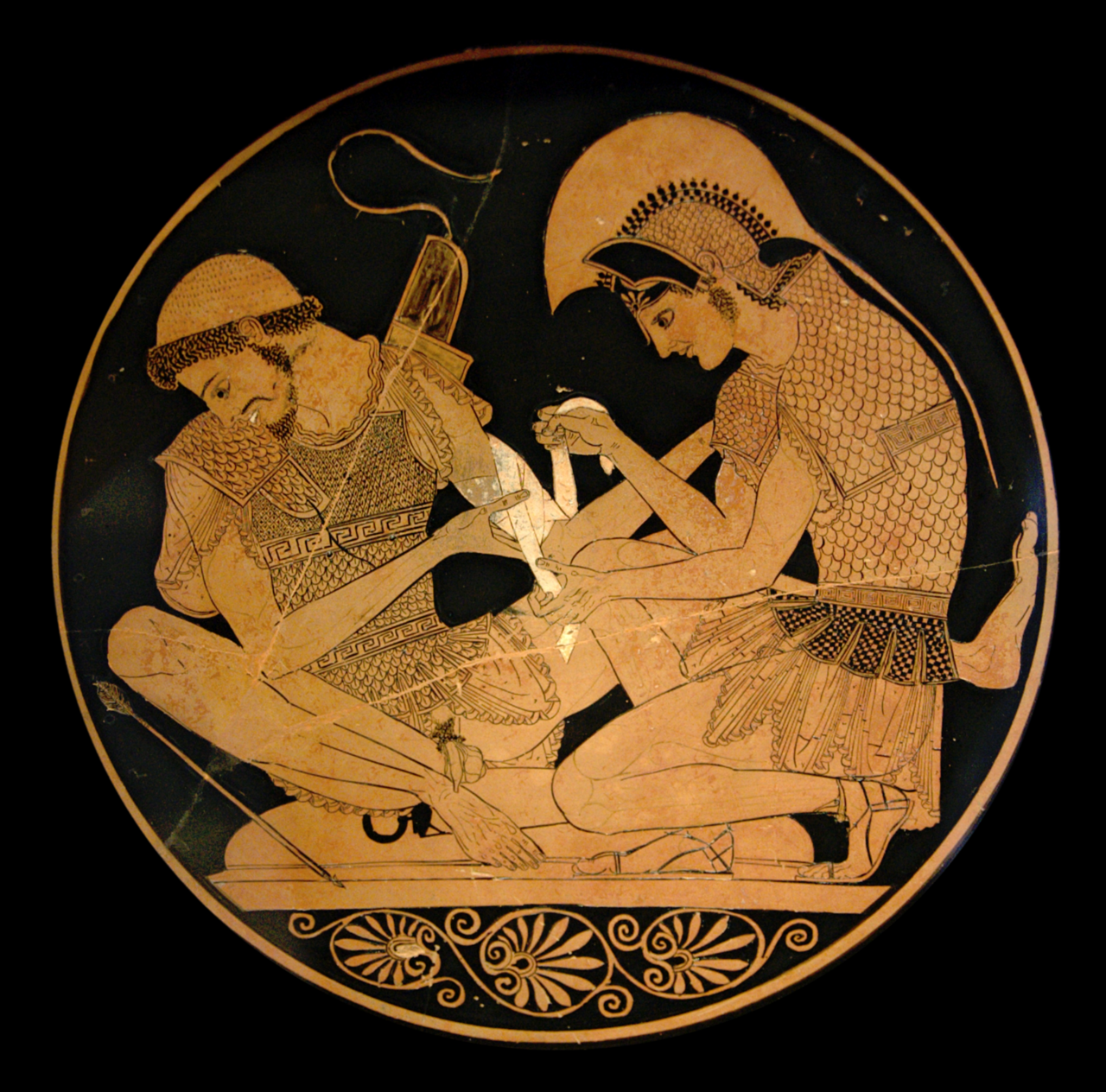As a well-educated nineteenth-century English man, John Addington Symonds read the ancient Homeric epics at an early age. In addition to the aid works like these provided in students Latin and Greek like Symonds, they seem to have contained the terms and ideas that ultimately led him to write A Problem in Greek Ethics. Symonds references Homer often throughout his collected works for varied reasons, but many of the allusions to the Iliad concern the story of Achilles and Patroclus.
In his essay, after defining the Greek social custom of paederastia, the first thing Symonds references is the famed Achilles and his companion Patroclus, included in only the second section of his piece. The placement of this story in the opening of the unedited version of the essay places it in conjunction with paederastia, defined mere sentences before. The most logical path, then, would be for Symonds to expound upon the paederastic nature of that connection.
Instead, the first part of Symonds’ essay states that Homer makes no effort to portray Achilles and Patroclus’ relationship as paederastic, writing that “in the delineation of the friendship of Achilles and Patroclus there is nothing which indicates the passionate relation of the erastes and eromenos”(1). He writes that “the tale of Achilles and Patroclus sanctioned among the Greeks a form of masculine love… afterwards connected with paederastia” (2), in short, paederastia became an accepted social custom after Homer’s time, and the oft-referenced relationship between Achilles and Patroclus did not become a paederastic model until long after the stories in Homer’s Iliad. Homer’s role in Symonds’ work, then, is a counterintuitive one: Symonds uses stories of his that have since become models of paederastia, like Achilles and Patroclus or Zeus and Ganymede, as an example of the heroic friendship that preceded the common practice of paederastia in Greece. Of all Homer’s work, it is these two pairs that are referenced most often in A Problem in Greek Ethics.
The debate about Achilles’ and Patroclus’ relationship can be seen very clearly in a painting of the two dated around 500 BC, where Achilles is assisting a wounded Patroclus. Their physical intimacy is striking, and could suggest either the intimacy of friendship or a more romantic connection, neatly summarizing the frustrating ambiguity of their relationship.

Symonds uses this argument as the basis for the first few sections of A Problem in Greek Ethics: he explains how heroic friendship differed from paederastia, and theorizes that the origins of paederastia were not exclusively Greek. Using a line from the Iliad to prove his point, Symonds writes that “Homer, who knew nothing about [paederastia] as it afterwards existed, drew a striking picture of masculine affection in Achilles. Friendship occupies the first place in his hero’s heart, while only the second is reserved for sexual emotion”(3). Analyzing Achilles’ character in this way supports Symonds’ assertion that the connection between him and Patroclus was merely a precursor to the custom of Greek paederastia, falling more neatly into the category of heroic friendship.
Through A Problem in Greek Ethics, Symonds uses more concrete evidence than the stories of Homer’s epics to illustrate the existence and practice of paederastia, exploring the potential origin of the custom and how it was realized in the gymnasiums and military institutions of Greece. But a thread drawn from the epics of Homer runs beneath Symonds’ work, for it is from the stories told about Greece that understanding of cultural practices like paederastia can be best understood.
Footnotes:
1. John Addington Symonds and Sean Brady, “A Problem in Greek Ethics,” 44.
2. Ibid, 45.
3. Ibid, 58.
Works Cited:
Symonds, John Addington. “A Problem in Greek Ethics,” essay, in John Addington Symonds (1840-1893) and Homosexuality: a Critical Edition of Sources. Edited by Sean Brady. London: Palgrave Macmillan.
Symonds, John Addington. 1923. Letters and Papers of John Addington Symonds. Edited by Horatio F. Brown. New York: C. Scribner’s Sons.
Symonds, John Addington. 2016. The Memoirs of John Addington Symonds: a Critical Edition. Edited by Amber K. Regis. London: Palgrave Macmillan.

